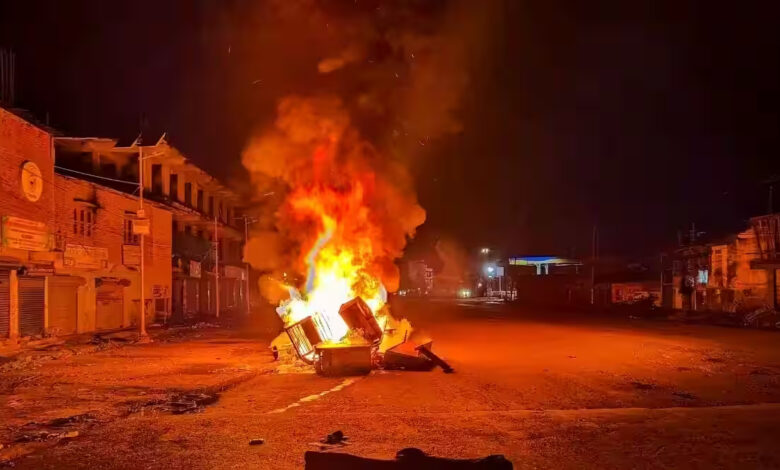Respectfully dispose of unclaimed bodies if no relations are present: SC panel on Manipur

With scores of unclaimed bodies in mortuaries across Manipur, which has been embroiled in ethnic strife since the beginning of May, a three-member Supreme Court-appointed committee of former judges has recommended that the state government publish a list of the dead so that next of kin can be identified, and that if no one comes forwards, dispose of the bodies in a “respectable manner.”
According to a notification issued by the Manipur police last week, 96 bodies remain unclaimed in mortuaries. Since the police have estimated the death toll at 175, this means that more than half of those killed have yet to be laid to rest.
The Supreme Court created a three-member committee of former High Court judges last month, led by retired J&K High Court Chief Justice Gita Mittal, to investigate the humanitarian aspects of the violence in Manipur. Manipur Chief Secretary Vineet Joshi listed actions made by the state to upgrade its Victim’s Compensation Scheme and other topics covered by the committee in its recommendations, in an affidavit presented to the Supreme Court on Friday.
According to the affidavit, one of the committee’s recommendations is that the state government publish and distribute a list of persons who perished in the war and make attempts to “rapidly identify the next of kin,” ensuring that they receive the stipulated ex gratia payment. If this effort fails, the committee has advised district collectors to locate acceptable sites and “dispose of the bodies in a respectable manner.”
The committee made the suggestion during its ninth meeting on September 8.
“The state government is coordinating with the three-judge committee closely on the said issue as it is a sensitive issue and requires to be tackled delicately,” says the affidavit.
The subject of body claims and disposal has been one of the most sensitive and divisive problems in the continuing battle. Nearly five months into the conflict, the bodies of many of those slain in the initial few days of violence remain unclaimed at three state mortuaries: JNIMS and RIMS in Imphal and the Churachandpur District Hospital.
This is largely due to the inability of families from one community to attend hospitals in areas dominated by the other community in order to identify and claim the dead. While Meiteis predominate in Imphal and the valleys, Kukis rule the hills.
Furthermore, despite the fact that 35 of the bodies in the Churachandpur mortuary as of August 3 were of people from the dominant Kuki-Zomi community, the Indigenous Tribal Leaders’ Forum (ITLF) had directed the families not to claim the bodies, with the stated goal of pressuring the government to transport bodies lying in mortuaries in Imphal to their home areas. The leaders indicated that they intended to perform a common celebration for all of the community’s dead and provide them with “honorable last rites.”
Last month, the ITLF declared that it would bury those 35 remains in Torbung, a region in the Kuki-Zomi-dominated Churachandpur district adjoining the Meitei-dominated Bishnupur district.
The Ministry of Home Affairs had to intercede to persuade them to reconsider the August programme. Although the ITLF called it off on the morning of August 5, tensions had already risen, culminating in an intensification of the conflict in the districts of Bishnupur and Churachandpur.



